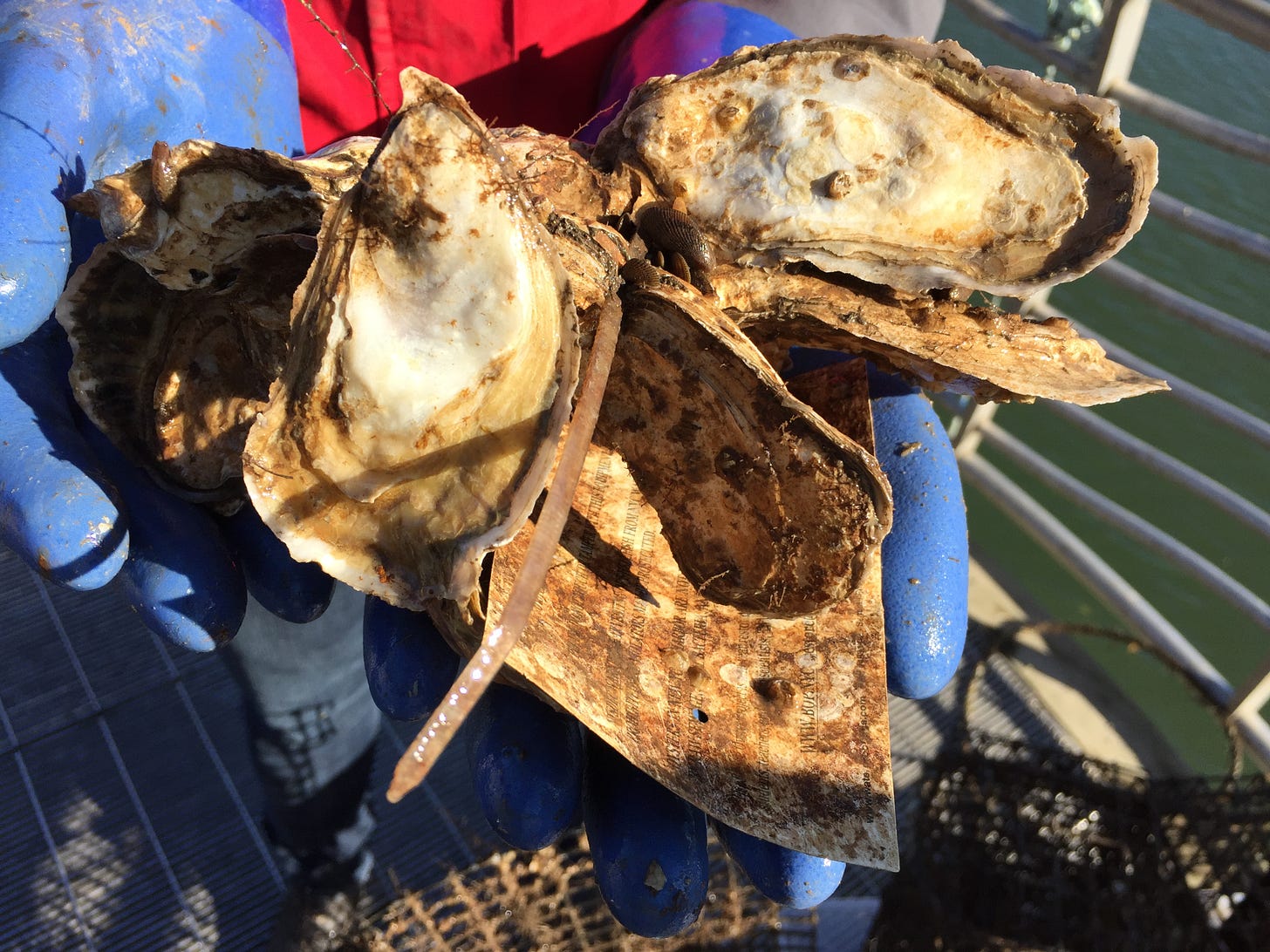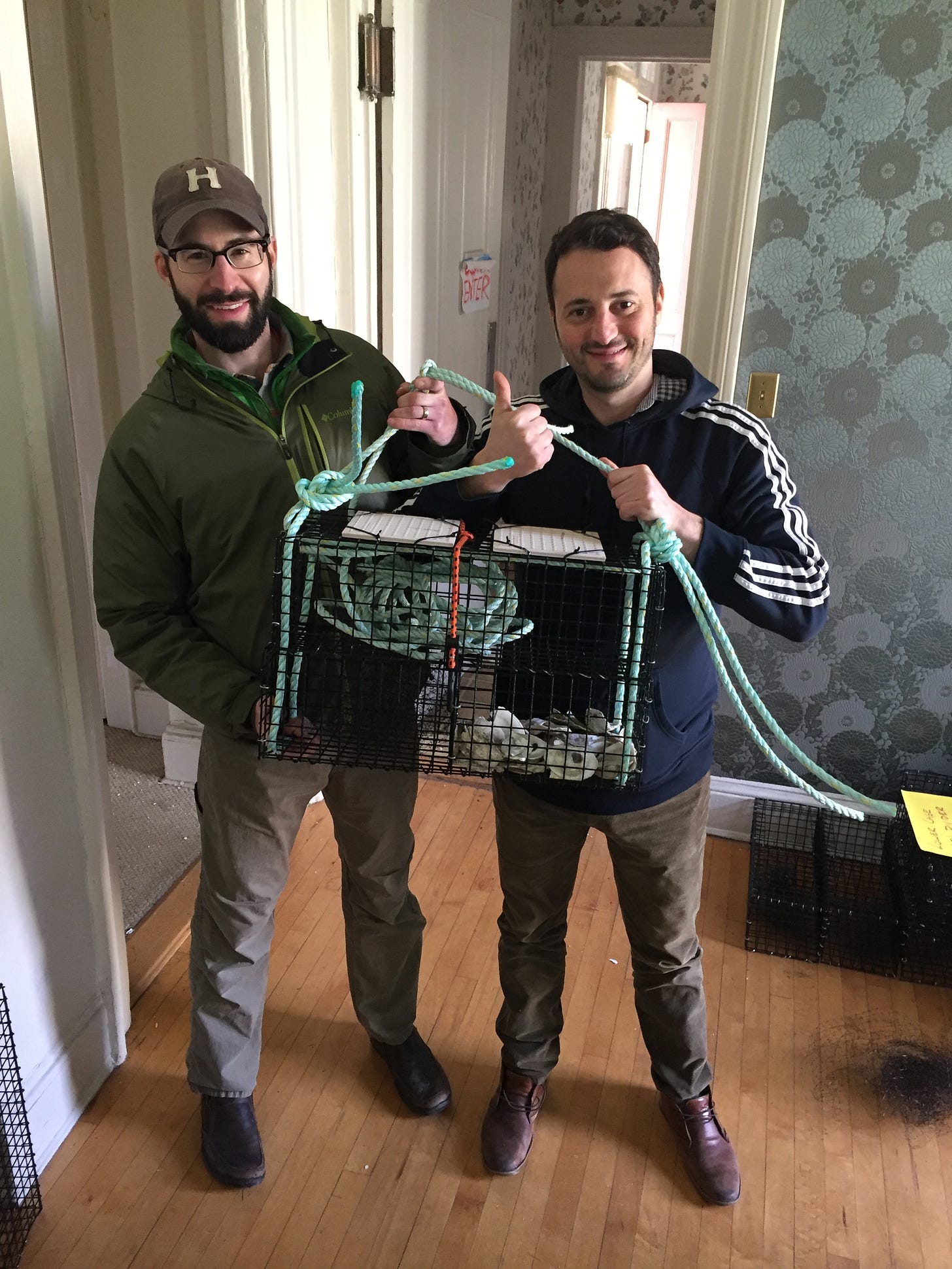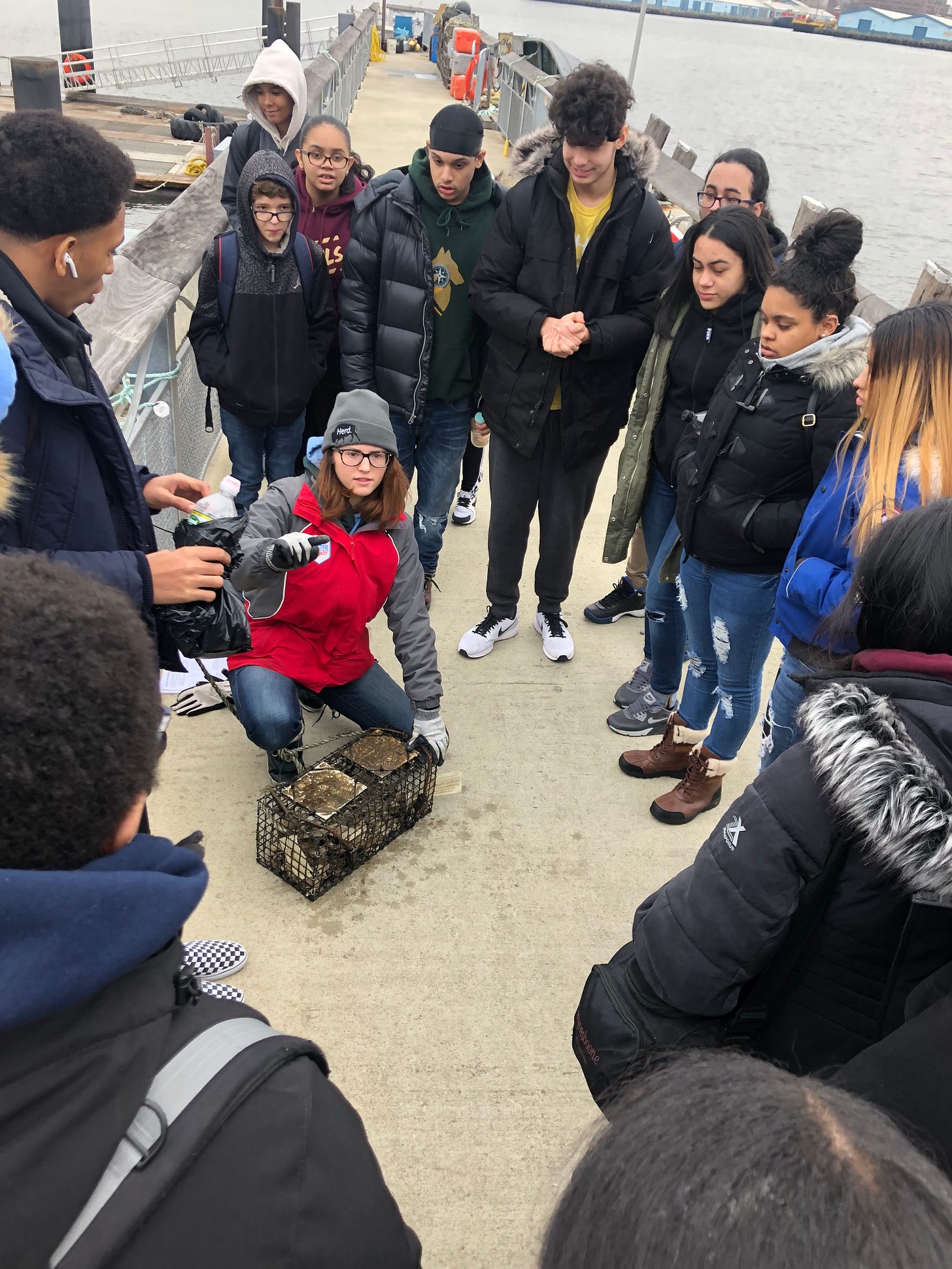Pursue Professional Development (part 3)
How and why we must uplift, inspire, and support educators with meaningful PD.

As any educator can attest, not all PD (professional development) is created equal.
Indeed, I certainly attended my fair share of top-down PD sessions that failed to land and were quickly forgotten. However, as my past posts (here and here) and a good portion of my book Learning Environment will attest, I have also participated in professional learning experiences that revolutionized my approach to teaching.
One of the pedagogy-altering PDs that inspired me to design curriculum and create partnerships with organizations that took my teaching to new heights was brought to me courtesy of a Math for America (MfA) fellowship.
Throughout my last seven years in the classroom, I was lucky enough to be a member of this teacher-uplifting community-building organization. This meant I had the privilege of rubbing elbows alongside some of New York City’s best math and science teachers and being exposed to various STEM-centric organizations.
Early in my fellowship, I signed up for a mini-course consisting of three 2-hour workshops facilitated in tandem by the Billion Oyster Project (BOP) and BioBus.
The course, which was hosted at BioBus’s community science lab on the Lower East Side, exposed me to the world of the oyster.
Highlights of BOP/BioBus mini-course experience included…
Studying the history of the oyster and learning of its one-time essential ‘keystone’ ecological and economic role in New York.
Viewing the shimmering beauty of a still-living oyster under a research-grade microscope.
Designing and carrying out my very own oyster experiment - I measured the impact of varying salinities on the growth of oysters.
Taking a trip to the East River, hauling up an oyster restoration station (ORS), and learning how to take oyster measurements & conduct water quality analyses.
Celebrating our learning at an oyster bar, where I slurped down my first oyster on the half shell (mmm… briny).
Following this amazing PD, I was soon on the lookout for opportunities to bring the mighty bivalve into my classroom and teach my students about its past and ongoing role in the waterways around their city. Indeed, what is the point of attending a powerful PD if you’re not going to share it with your students?
Thankfully, BOP and its generous training and scholarship program afforded me the opportunity to do this.
Following another all-day PD training at BOP headquarters on Governors Island, my students soon had access to the full suite of citizen science oyster-centric resources and materials. My classes could now study their own oyster restoration station (ORS) in the nearby waters of the Harlem River near our school in upper Manhattan.

Soon after, my colleague and I designed a series of oyster-centric interdisciplinary cross-classroom lessons. Using the PD experiences I was a part of, thanks to MfA, BOP, and BioBus, our students were, like I was a few months before, learning all about the historical significance, ecological importance, and ongoing efforts to restore oysters to New York’s waters.
During our week-long course, students
Read about the history and destruction of the oyster ecology and economy in New York City (I highly recommend Mark Kurlansky’s The Big Oyster: History on the Half Shell).
Toured BOP headquarters’ aquaculture lab on Governors Island.
Measured oysters and water quality conditions from our ORS in the Harlem River.
Worked alongside BioBus scientists within their mobile lab to examine marine creatures (including oysters) under research-grade microscopes.
Were visited by landscape architects from the world-renowned SCAPE studio - hearing firsthand about their effort to recreate oyster-centric ‘living shorelines’ to protect the city from future storms and rising seas.
Created and presented ingenious model oyster restoration reefs to an outside audience.
Tasted (for those courageous enough to do so) their very first oyster on the half shell.
Students gather around an oyster restoration station (ORS) and BOP-staffer on Governors Island
My students’ entire oyster experience, crammed into a course that met all day every day for an entire week (additional details to be provided in Learning Environment), was an amalgamation of everything I had learned during my professional development experience. It also allowed me to bring my educational philosophy - or belief that students, to engage in a learning experience fully, must be exposed to and provided with opportunities to work alongside experts, connect their learning to the world around them, gather data, and advocate for action - to life.
For these reasons, I continue to be grateful for organizations like MfA, BioBus, and BOP that exist to support and uplift teachers and their students. Furthermore, I encourage more organizations to consider what they can do to support educators on the front line and suggest that providing meaningful professional development as a great place to start.
Enjoyed this post? Please help me grow so my writing can reach a wider audience.
Like, Subscribe, Comment, Share - yes, every click helps
Thanks!


